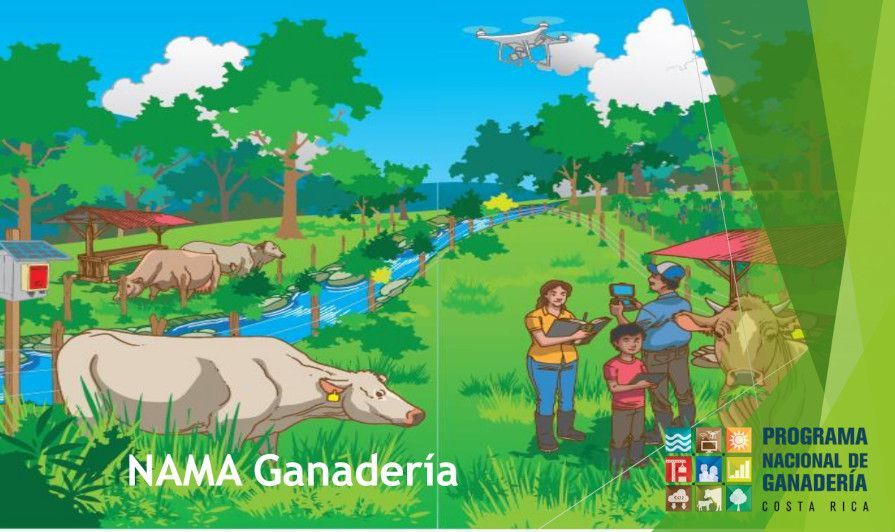A peer-to-peer experience exchange workshop was held on the development work for the preparation of the National Low Carbon Livestock Strategy of Costa Rica with the Sub-national GHG Emissions Reduction Plan for the livestock sector of the province of Salta in Argentina.
In the framework of the EUROCLIMA+ programme's support process through the FIIAPP, to the Secretary of Environment and Sustainable Development of the province of Salta in Argentina, on the preparation of the "Greenhouse Gas Emissions Reduction Plan in the Livestock Sector", an exchange was held with technicians from the Ministry of Agriculture and Livestock and the Ministry of Environment and Energy (MINAE) of Costa Rica, on the work process developed in the preparation of its "National Low Carbon Livestock Strategy (ENGBC)". The objective was to share the key aspects of the experience developed by Costa Rica in the preparation and implementation of its ENGBC to feed the process being developed by the Secretariat of Environment and Sustainable Development of Salta (Argentina).
On the one hand, the meeting focused on the institutional frameworks and governance of the initiatives, and on the other hand, on the roles of these instruments in the framework of the policies promoted at different levels of government, with two visions: from the national vision to the territory and from the territories to the national level.
The meeting focused on the institutional frameworks and governance of the initiatives, on the one hand, and on the roles of these instruments in the framework of the policies promoted at different levels of government, with two visions: from the national vision to the territory and from the territories to the national level, on the other.
During the event, the characteristics of the productive sectors of Salta and Costa Rica were presented, as well as the production conditions in the livestock sector. GHG reporting tools, the reporting access system, temporality, validation and emission factors were analysed. Finally, future emission scenarios were addressed.
Costa Rica highlighted the importance of working on the virtuous cycle relationship between animal-plant-soil as a basis for moving towards sustainable livestock farming, based on increasing production and reducing greenhouse gas (GHG) emissions, while also providing environmental benefits and contributing positively to sustainable development goals. Involving producers from the early stages of the development of emissions reduction plans is fundamental for their appropriation, as well as having a broad network of extension agents who can provide training and technical assistance to producers in terms of technologies and best practices. Through concrete implementation plans or tools such as NAMAS it is possible to promote management measures such as the presence of trees and shrub vegetation in paddocks (living fences, trees in pastures and/or wooded areas), soil care, proper purine management, livestock feeding and welfare, practices that can contribute to sustainable livestock production.
The meeting has allowed an exchange of key learning experiences to advance the process of developing the Greenhouse Gas Reduction Plan in the livestock sector of the province of Salta in Argentina, which has facilitated the understanding of critical and/or strategic elements to be identified for the development of a GHG mitigation plan in the livestock sector.
About EUROCLIMA+
EUROCLIMA+ is a programme funded by the European Union to promote environmentally sustainable and climate-resilient development in 18 Latin American countries, particularly for the benefit of the most vulnerable populations. The Programme is implemented under the synergistic work of seven agencies: the Spanish Agency for International Development Cooperation (AECID), the French Development Agency (AFD), the Economic Commission for Latin America and the Caribbean (ECLAC), the German Society for International Cooperation (GIZ), Expertise France (EF), the International and Ibero-America Foundation for Administration and Public Policy (FIIAPP), and UN Environment.
Contact: Daniel Fernández This email address is being protected from spambots. You need JavaScript enabled to view it.
